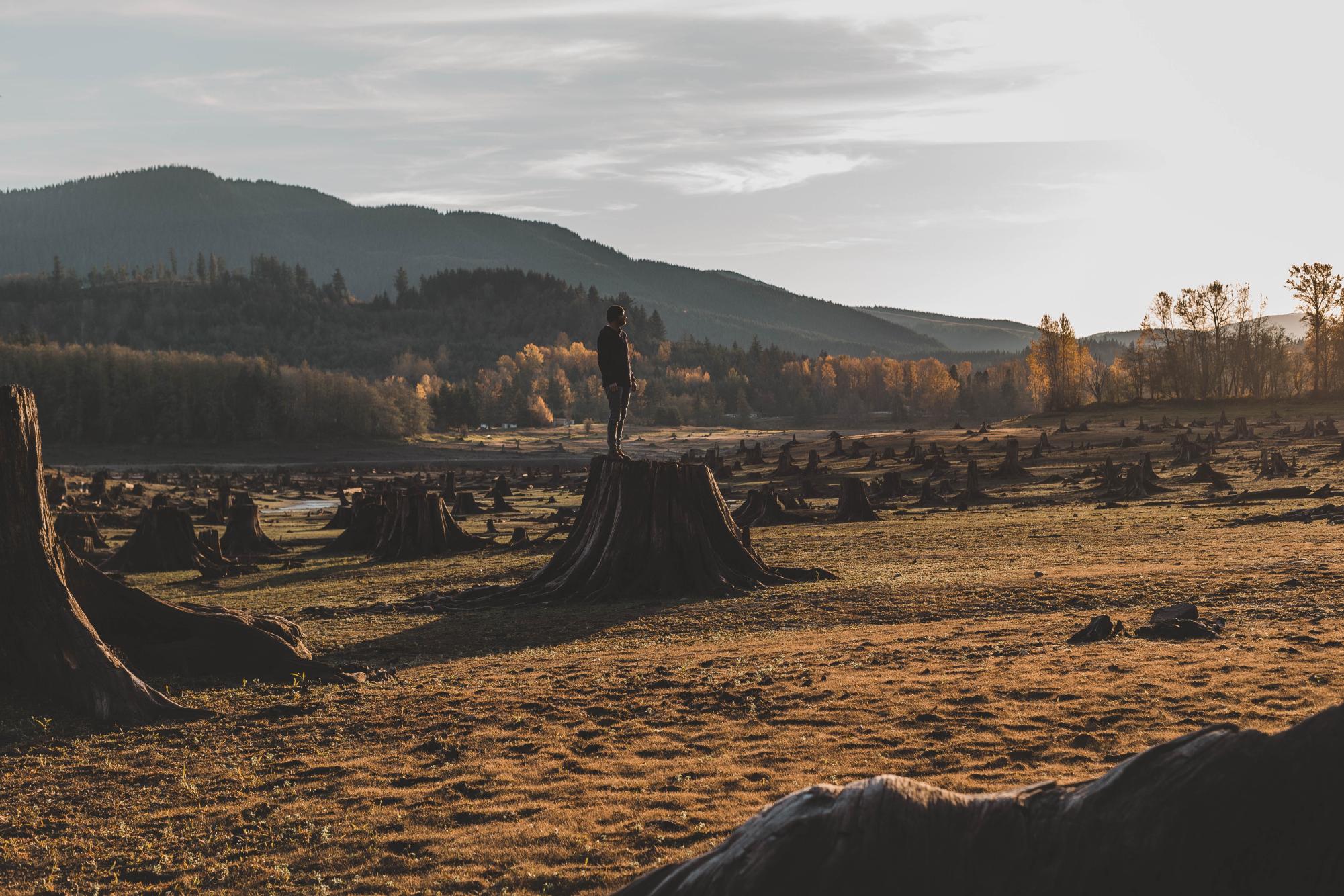What is the fundamental problem standing in the way of protecting our planet, and why are many of us reluctant to take meaningful action? When looking for the answer to this question, we must shine a light on anthropocentrism, an ideology that is ingrained into Western thought. Anthropocentrism places humanity at the center of the universe and is at the core of our environmental crisis.
The reluctance to tackle environmental issues often perplexes those who understand just how serious the environmental crisis is. Who would consciously endorse the destruction of the very planet that sustains us? But the complexities surrounding this reluctance run deep, making it imperative that we uncover the root of the issue.
At first, we might point fingers at external factors such as corporate interests, political deadlock, and inadequate policies, which undoubtedly play a significant role. However, we must delve deeper and ask why these obstacles persist. Why do we continue to prioritize immediate gains over the long-term health of our planet?
The answer, at its core, is anthropocentrism. The deeply ingrained belief that humans are entitled to modify and manipulate nature for our convenience is what perpetuates our hesitancy. It fosters a worldview where our immediate needs and desires are more important than the well-being of the environment. It creates a self-centered perspective that often obscures the broader consequences of our actions.
Anthropocentrism also feeds the notion that we stand apart from the natural world. This assumption encourages us to see nature as a resource to be exploited rather than as a complex, interconnected ecosystem of which we are a part. This separation from nature creates a sense of alienation and loneliness, as it divorces us from our true identity.
As beings intricately woven into the fabric of the environment, the disconnect promoted by anthropocentrism is, in reality, something that leaves us feeling lost and alone. We are not outsiders in a distant alien world; we are an essential part of nature. Society has, over time, removed us from this connection, leading to a profound sense of detachment.
The consequences of this disconnect are not limited to our relationship with the environment; they permeate our entire lives. We are social animals, and yet we often feel isolated and detached in a world that is increasingly interconnected through digital means, but paradoxically disconnected from nature.
We must confront this root issue, anthropocentrism, to address the environmental crises we face. The destruction of our planet, from climate change to biodiversity loss, stems from a belief that we can exploit nature for our gain without considering the broader consequences.
To move forward we must reject anthropocentrism and embrace ecocentrism, a worldview that acknowledges our interdependence with the environment and where our well-being is inextricably linked to the health of the planet and all its inhabitants.
By adopting sustainable practices, reducing our ecological footprint, and making conscious choices about resource consumption, we can start to address the root issue. Rethinking our systems of production and consumption, embracing renewable energy, and fostering a sense of responsibility toward the environment are vital steps. Conservation, reforestation, and the protection of wildlife all contribute to healing the damage caused by anthropocentrism.
Our hesitancy to save the planet is rooted in anthropocentrism and stands in the way of our collective efforts to address environmental challenges. To truly protect our planet, we must acknowledge that we are a part of nature, not apart from it. The time has come to move away from anthropocentrism and adopt a more balanced and sustainable relationship with the natural world. Our future, as well as the future of countless species, depends on this change in perspective.








